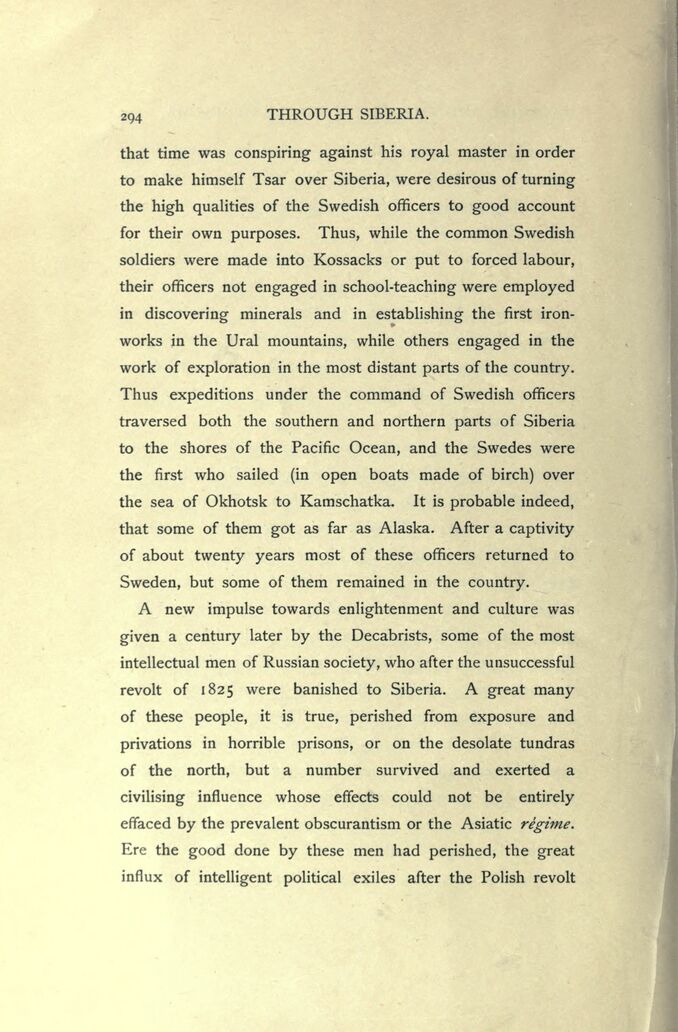
Full resolution (JPEG) - On this page / på denna sida - XXIV. Material and Spiritual Culture in Siberia

<< prev. page << föreg. sida << >> nästa sida >> next page >>
Below is the raw OCR text
from the above scanned image.
Do you see an error? Proofread the page now!
Här nedan syns maskintolkade texten från faksimilbilden ovan.
Ser du något fel? Korrekturläs sidan nu!
This page has been proofread at least once.
(diff)
(history)
Denna sida har korrekturlästs minst en gång.
(skillnad)
(historik)
that time was conspiring against his royal master in order
to make himself Tsar over Siberia, were desirous of turning
the high qualities of the Swedish officers to good account
for their own purposes. Thus, while the common Swedish
soldiers were made into Kossacks or put to forced labour,
their officers not engaged in school-teaching were employed
in discovering minerals and in establishing the first
ironworks in the Ural mountains, while others engaged in the
work of exploration in the most distant parts of the country.
Thus expeditions under the command of Swedish officers
traversed both the southern and northern parts of Siberia
to the shores of the Pacific Ocean, and the Swedes were
the first who sailed (in open boats made of birch) over
the sea of Okhotsk to Kamschatka. It is probable indeed,
that some of them got as far as Alaska. After a captivity
of about twenty years most of these officers returned to
Sweden, but some of them remained in the country.
A new impulse towards enlightenment and culture was
given a century later by the Decabrists, some of the most
intellectual men of Russian society, who after the unsuccessful
revolt of 1825 were banished to Siberia. A great many
of these people, it is true, perished from exposure and
privations in horrible prisons, or on the desolate tundras
of the north, but a number survived and exerted a
civilising influence whose effects could not be entirely
effaced by the prevalent obscurantism or the Asiatic régime.
Ere the good done by these men had perished, the great
influx of intelligent political exiles after the Polish revolt
<< prev. page << föreg. sida << >> nästa sida >> next page >>